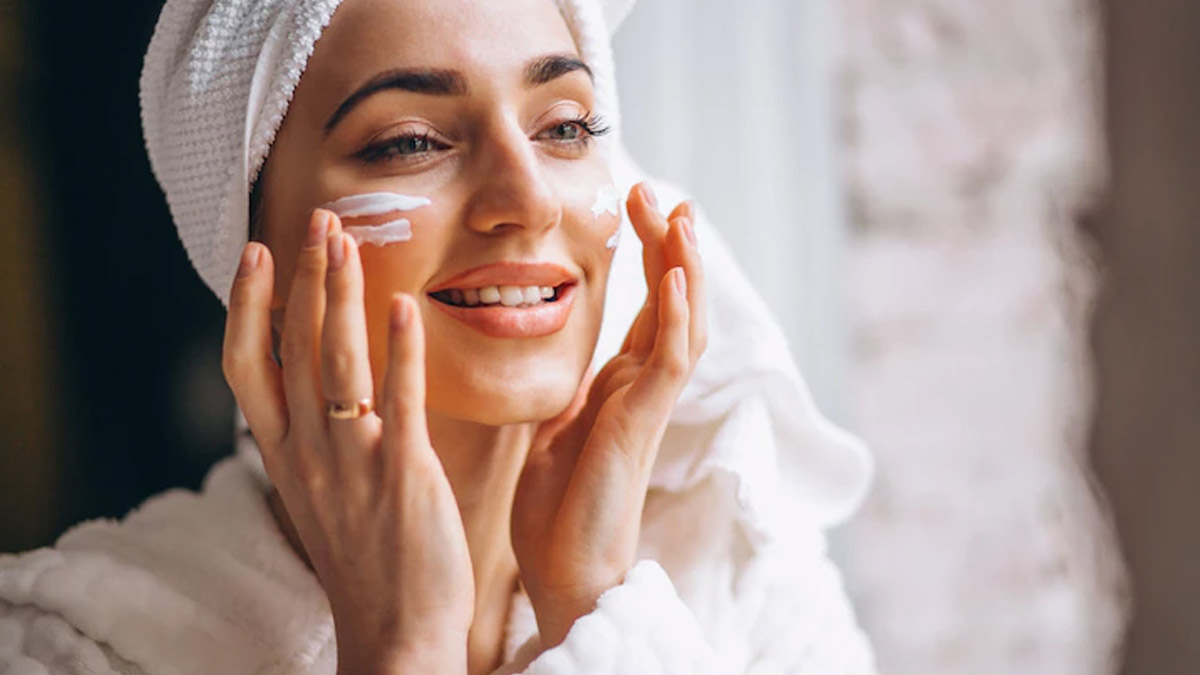
In the pursuit of glowing, youthful skin, we tend to concentrate on elaborate skin regimens and high-end products. Though these are certainly part of the equation, one of the most basic yet potent approaches to healthy skin is found in a mighty class of compounds: antioxidants. These teeny-tiny wonders are your skin's best-kept secret, working tirelessly behind the scenes to shield it from daily environmental stressors.
Table of Content:-
The Enemy Within (and Without)
In an exclusive interaction with the editorial team of Onlymyhealth, Dr Sanjeev Gulati, Dermatologist, Department of Dermatology, Sharda Hospital, Noida, explained that to know how important antioxidants are, it's important to understand their arch-nemesis: free radicals. These extremely unstable molecules are an involuntary side effect of our body's metabolic functions, but their presence is greatly augmented by outside influences such as the sun's UV radiation, environmental pollution, cigarette smoke, and even stress.
When free radicals are out of control, they create what's called "oxidative stress." Envision a small, wrecking ball effect occurring on a cellular level. Free radicals basically "borrow" electrons from healthy cells, causing damage to DNA, proteins, and lipids. On the skin, this damage is seen as:
- Premature Ageing: Fine lines, wrinkles, and loss of firmness as collagen and elastin break down.
- Hyperpigmentation: Dark spots and blotchy skin colour.
- Inflammation: Redness, irritation, and worsening of conditions such as acne and rosacea.
- Compromised Skin Barrier: Resulting in dryness, sensitivity, and heightened susceptibility to environmental aggressors.
- Increased Risk of Skin Cancer: Severe, chronic oxidative stress may cause damage to cellular DNA, leading to skin cancers.
Also Read: Fitness Expert Shares 3 Worst Breakfast Options For Busy People

Antioxidant Shield and How They Work
This is where antioxidants come in as the brave bodyguards. Antioxidants are free radical molecules which can donate an electron safely to a free radical, ending its ability to do harm and causing it to calm down. Imagine them as small bodyguards, dying for your beautiful skin cells.
By fighting free radicals and diminishing oxidative stress, antioxidants provide a myriad of advantages for your skin:
- Fights Signs of Ageing: Antioxidants work to keep collagen and elastin intact, keeping the skin firm and elastic, slowing down the look of wrinkles and fine lines.
- Brightens Skin Tone: They may help to prevent the formation of melanin, resulting in a more even-toned and luminous complexion and a minimisation of hyperpigmentation.
- Reduces Inflammation: Most antioxidants are anti-inflammatory, soothing red, irritated skin and minimising redness.
- Increases Sun Protection: Although not a replacement for sunscreen, antioxidants can amplify your skin's ability to fight UV damage, reducing the damaging effects of sun exposure.
- Assists Skin Repair: By lessening damage, antioxidants support the skin's natural repair mechanisms, ensuring healthy skin.
- Improves Skin Barrier: A healthier skin barrier is more resilient, more effective at holding moisture, and less susceptible to outside irritants.

Most Important Antioxidants for Healthy Skin
The silver lining is that the natural world offers a wealth of antioxidants. These are some of the superstars to find in your food and cosmetics:
- Vitamin C (L-Ascorbic Acid): It's possibly the most famous skin antioxidant. Vitamin C is essential to collagen synthesis, radiates complexion, and provides amazing protection from damage by UV.
- Vitamin E (Tocopherol): A fat-soluble antioxidant that acts synergistically with Vitamin C to defend cell membranes from oxidative stress and has moisturising properties.
- Vitamin A (Retinoids): An antioxidant and cell-communicating active, retinoids (such as retinol) induce cell turnover, diminish wrinkles, and enhance skin texture.
- Green Tea Extract (EGCG): High in polyphenols, green tea is a powerful anti-inflammatory and antioxidant, ideal for soothing inflamed skin and defending against environmental attacks.
- Resveratrol: Found in grapes and berries, this antioxidant is anti-ageing and anti-inflammatory.
- Niacinamide (Vitamin B3): A multifunctional ingredient that not only functions as an antioxidant but also improves the function of the skin barrier, decreases redness, and shrinks pores.
- Ferulic Acid: Frequently combined with Vitamin C and E, ferulic acid stabilises these vitamins while enhancing their photoprotective effects.
- Coenzyme Q10 (CoQ10): A naturally occurring body antioxidant, CoQ10 decreases with age. Topically applied, it will defend against free radical damage and assist in energy production in skin cells.
How To Add Antioxidants to Your Regimen
To gain the maximum benefit from antioxidants, a two-pronged system is best:
- Dietary Intake: Top your plate with antioxidant-rich foods! Consider bright-colored fruits and vegetables (berries, leafy greens, citrus), nuts, seeds, green tea, and dark chocolate. A balanced diet equips your body with the internal protection it requires.
- Topical Application: Integrate skincare products containing antioxidants into your regimen. Seek out serums, moisturisers, and sunscreens that contain these potent ingredients. Using them in the morning can create a daytime shield against aggressors, and evening usage can aid night-time repair.
Bottomline
Antioxidants are more than just a skin care fad; they're an integral element of healthy, strong skin. When you learn how they protect against free radical damage, you can make educated decisions about your diet and skin care, giving your skin the best chance to look and feel great for years to come. Provide your skin with the protection it needs – harness the power of antioxidants!
Also watch this video
How we keep this article up to date:
We work with experts and keep a close eye on the latest in health and wellness. Whenever there is a new research or helpful information, we update our articles with accurate and useful advice.
Current Version